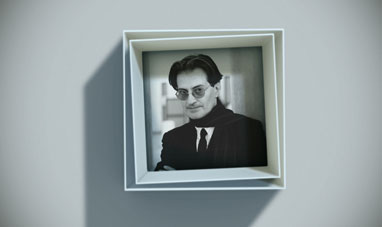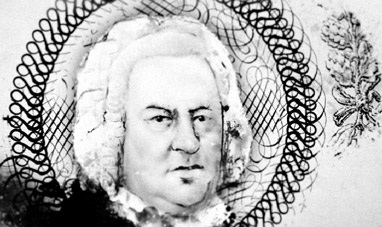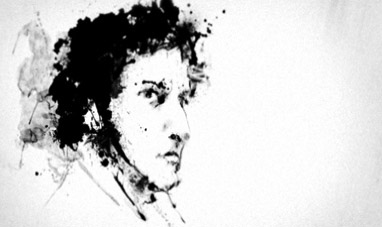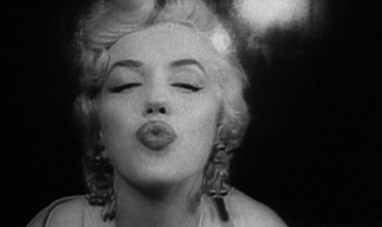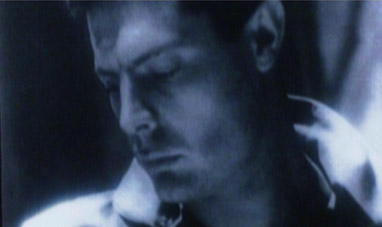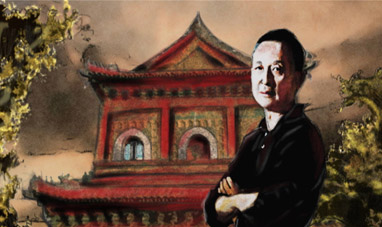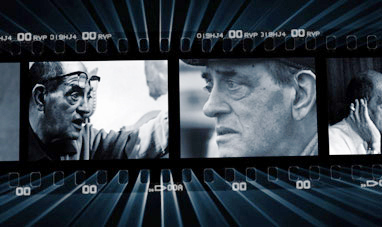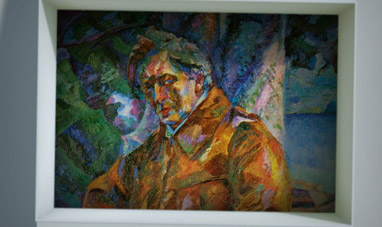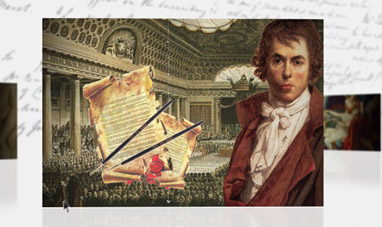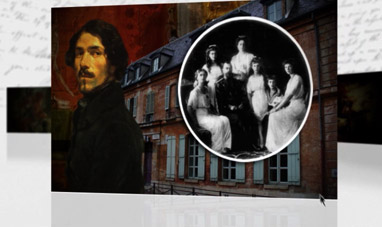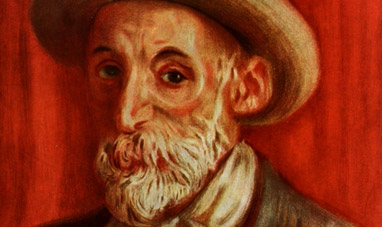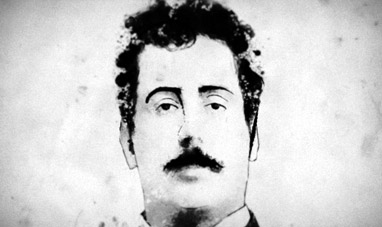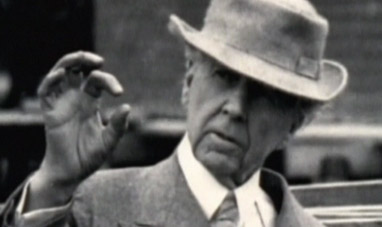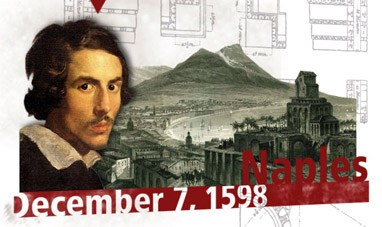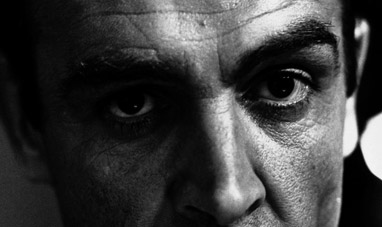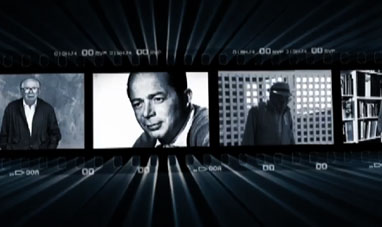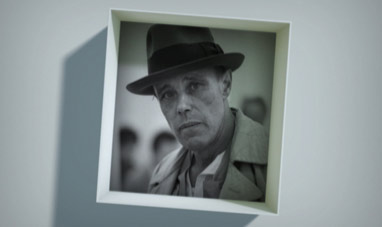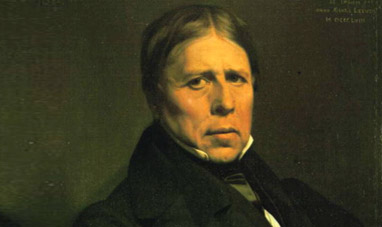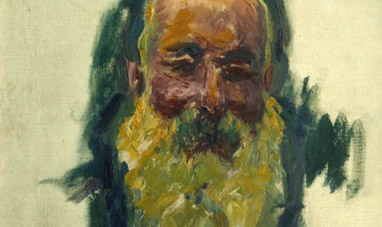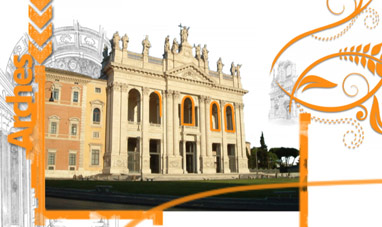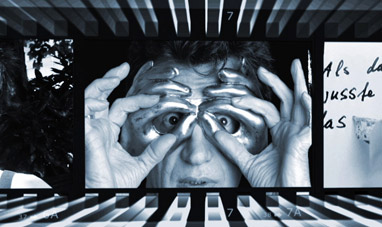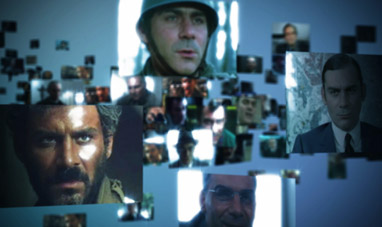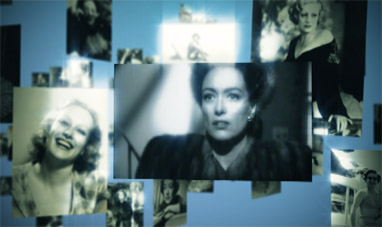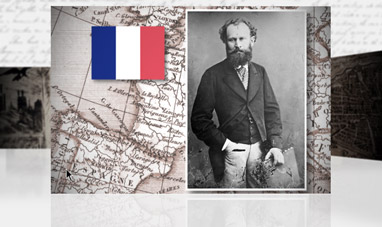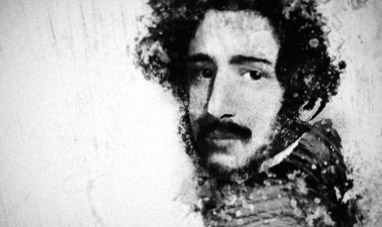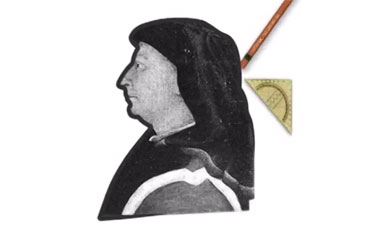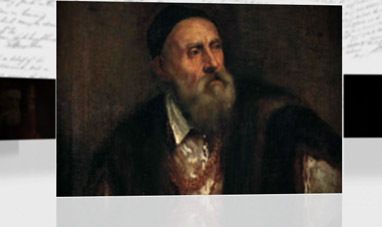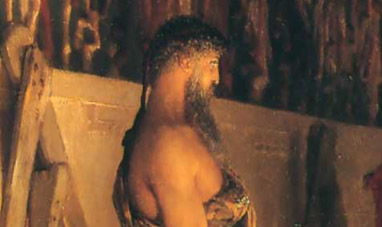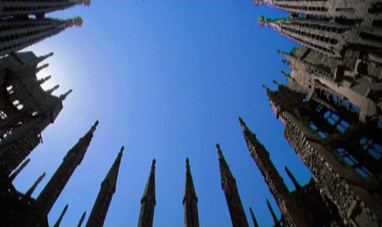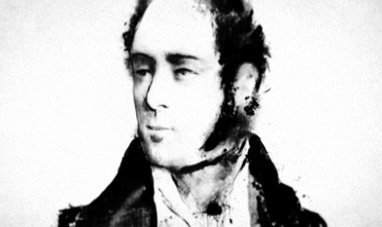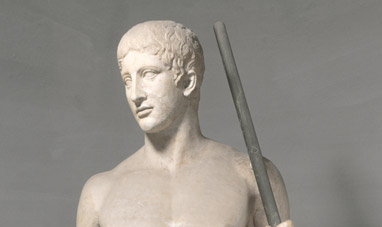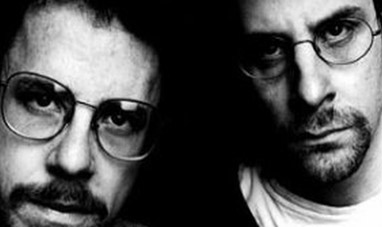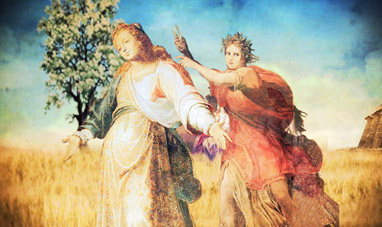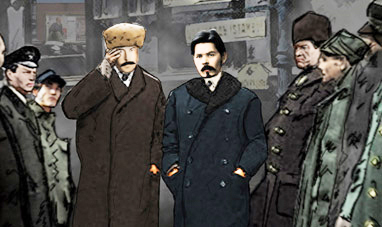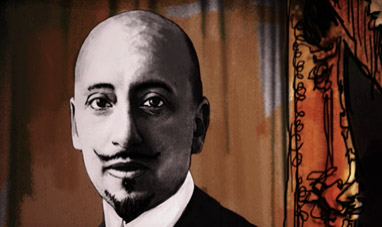Kurosawa
was
born
in
Tokyo
on
March
23,
1910,
into
a
family
descended
from
ancient
samurai.
As
a
boy,
he
developed
a
passion
for
literature,
painting
and
drama.
Kurosawa
made
his
film
debut
in
1943
with
Judo
Saga,
the
story
of
a
martial
arts
master.
His early movies tended to focus on social and personal issues. Drunken Angel, was the story of an alcoholic physician and a criminal with tuberculosis. It marked the beginning of Kurosawa’s long collaboration with actor Toshiro Mifune. In Japan, Kurosawa was recognized as an outstanding director.
He achieved international success with Rashomon, the story of a trial in which each witness gives his own account of a murder. The theme of the movie is the evasiveness of truth. Rashomon won a Golden Lion at the Venice Film Festival.
Kurosawa often used famous drama as a basis for his films, Shakespeare in particular. Macbeth was reworked as Throne of Blood, and King Lear inspired Ran.
The Lower Depths is an adaptation of a play of the same name by Russian writer Maxim Gorky. Kurosawa set the story in 19th‐century Japan, letting outcast characters who live in a public dump
tell the story.
Kurosawa’s most famous films are set in medieval Japan. One of the most notable is The Seven Samurai, in which a group of farmers seek protection from bandits by recruiting seven samurai who sacrifice their lives defending the village. The epic appeal of the film was not lost on Hollywood, which remade it as a Western: The Magnificent Seven, directed by John Sturges.
Sergio Leone remade Yojimbo – The Bodyguard into a Western called A Fistful of Dollars. Kurosawa accused the Italian director of plagiarizing, and won his case in court.
In Dodesukaden, Kurosawa told eight different tales of social degradation. The film was an explicit criticism of contemporary Japan. The movie was a failure, and Kurosawa attempted suicide.
But better times were to come: that same year he made Dersu Uzala, a sensitive story of friendship between a Russian officer and a lone hunter. The movie won an Oscar for Best Foreign Film.
Ten years later he had his biggest commercial success: Kagemusha, which won the Golden Palm in Cannes. The movie is set in medieval Japan, where a prince is replaced by his double. His replacement immerses himself in his new role. Unable to escape it, he ends up dying for his people.
Among the director’s last movies were Dreams, an episodic film, Rhapsody in August, about the atomic bomb in Nagasaki, and Madadayo – Not Yet, an autobiographic film
Kurosawa died in Setagaya on September 6, 1998. He was 88.
His early movies tended to focus on social and personal issues. Drunken Angel, was the story of an alcoholic physician and a criminal with tuberculosis. It marked the beginning of Kurosawa’s long collaboration with actor Toshiro Mifune. In Japan, Kurosawa was recognized as an outstanding director.
He achieved international success with Rashomon, the story of a trial in which each witness gives his own account of a murder. The theme of the movie is the evasiveness of truth. Rashomon won a Golden Lion at the Venice Film Festival.
Kurosawa often used famous drama as a basis for his films, Shakespeare in particular. Macbeth was reworked as Throne of Blood, and King Lear inspired Ran.
The Lower Depths is an adaptation of a play of the same name by Russian writer Maxim Gorky. Kurosawa set the story in 19th‐century Japan, letting outcast characters who live in a public dump
tell the story.
Kurosawa’s most famous films are set in medieval Japan. One of the most notable is The Seven Samurai, in which a group of farmers seek protection from bandits by recruiting seven samurai who sacrifice their lives defending the village. The epic appeal of the film was not lost on Hollywood, which remade it as a Western: The Magnificent Seven, directed by John Sturges.
Sergio Leone remade Yojimbo – The Bodyguard into a Western called A Fistful of Dollars. Kurosawa accused the Italian director of plagiarizing, and won his case in court.
In Dodesukaden, Kurosawa told eight different tales of social degradation. The film was an explicit criticism of contemporary Japan. The movie was a failure, and Kurosawa attempted suicide.
But better times were to come: that same year he made Dersu Uzala, a sensitive story of friendship between a Russian officer and a lone hunter. The movie won an Oscar for Best Foreign Film.
Ten years later he had his biggest commercial success: Kagemusha, which won the Golden Palm in Cannes. The movie is set in medieval Japan, where a prince is replaced by his double. His replacement immerses himself in his new role. Unable to escape it, he ends up dying for his people.
Among the director’s last movies were Dreams, an episodic film, Rhapsody in August, about the atomic bomb in Nagasaki, and Madadayo – Not Yet, an autobiographic film
Kurosawa died in Setagaya on September 6, 1998. He was 88.

